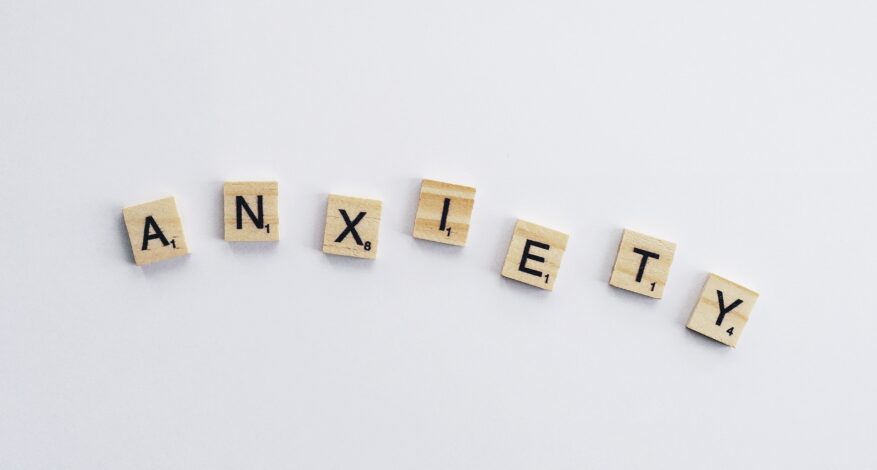WHAT IS ANXIETY AND HOW TO LIVE BETTER WITH IT?
Anxiety disorders include panic disorder, obsessive-compulsive disorder (OCD), post-traumatic stress disorder (PTSD), generalized anxiety disorder (GAD), and phobias (social phobia, agoraphobia, and other specific phobias). In 2017, 3.8% of the global population suffered from anxiety disorders which correspond to about 284 million people. Females are more likely to develop such disorders, as 4.1% of them suffer from anxiety compared to only 2.7% of males. However, these numbers may not reflect the entire reality because, in fact, many people don’t know they have anxiety, which has become even more common due to the impact of the global Covid-19 pandemic on the mental health of many.
What is anxiety and how to recognise its symptoms?
According to the Merriam-Webster dictionary, anxiety is “an abnormal and overwhelming sense of apprehension and fear often marked by physical signs (such as tension, sweating, and increased pulse rate), by doubt concerning the reality and nature of the threat, and by self-doubt about one’s capacity to cope with it”.
The main sign that suggests one may have anxiety, more specifically a Generalised Anxiety Disorder (GAD), is a feeling of worry that:
- is uncontrollable and causes distress
- affects their daily life (school, job, social life)
- cannot be stopped
- is about all sorts of things, from job or health to minor concerns, such as household chores
This feeling can appear as one or more of the following symptoms:
- feeling restless or nervous
- being irritable
- getting tired easily
- having difficulty concentrating or feeling your mind goes blank
- having difficulty falling asleep
- having tense muscles
GAD is a long-term condition and, therefore, most of the time its symptoms last for a long period of time and appear together. It can also be associated with depression.
However, even if one is not officially diagnosed with GAD, they may actually have anxiety, which may appear in different and specific ways. People should trust their feelings and sensations and be aware that living well despite the anxiety, if not overcoming it completely, is possible.
Tips to live better with your anxiety
- Physical exercise can make you feel better; while working out (or, in general, while doing something we enjoy) our body produces a substance called endorphin that reduces pain, anxiety, and stress.
- Adopting a healthy sleep routine by avoiding using your phone or other similar devices before going to sleep, by meditating, and creating a comfortable sleeping environment (e.g., a comfy bed or the right cool room temperature).
- Avoiding caffeine and alcohol as much as possible, so your body can follow its own rhythm without being stimulated by these substances.
 Writing down what makes you feel anxious or things you think are important to write. It will help you see things clearer and, eventually, find solutions to avoid or confront these triggering situations.
Writing down what makes you feel anxious or things you think are important to write. It will help you see things clearer and, eventually, find solutions to avoid or confront these triggering situations.- Doing breathing exercises is also a good thing to do when you feel overwhelmed or just to relax before going to sleep.
- Talking about it. Writing is a good way to put your feelings into words, but talking about it, with your family, your friends, or with a professional, is also good therapy.
Of course, taking medications is a possible treatment (remember it has to be prescribed by a professional!) but it is not the only way out. Find out what works best for you because what works for someone else might not work for you.
The calm zone and Unite Dgmh are two websites that provide a list of mental health charities and helplines that offer support, in many different countries. You can also find educational videos on YouTube; for example, the channel called Psych2Go has a lot of short-length videos talking about a lot of different subjects, including anxiety.
Remember you’re not alone! There are many people suffering from anxiety, which is not a taboo we shouldn’t talk about, but a condition people can be helped overcome.


